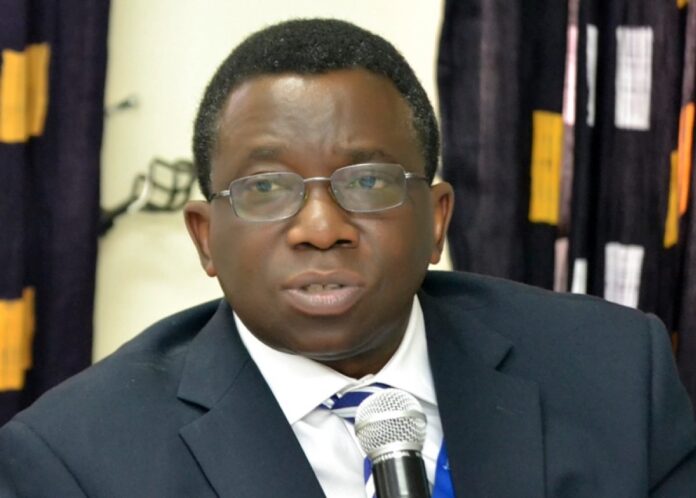Nigeria and 25 other countries in Africa and Asia are to benefit from lifesaving cancer treatments supported by the American Cancer Society (ACS) and the Clinton Health Access Initiative (CHAI).
CHAI, in a statement it jointly issued with ACS, on Monday announced that it had agreements with pharmaceutical companies Pfizer, Novartis and Mylan to expand access to 20 lifesaving cancer treatments in 26 countries in sub-Saharan Africa and Asia.
The 25 countries are: Botswana, Cameroon, Eswatini, Ethiopia, Ghana, Ivory Coast, Kenya, Lesotho, Liberia, Malawi, Mali, Mozambique, Namibia, Rwanda, Senegal, Sierra Leone, South Africa, Sudan and Tanzania.
Others are Uganda, Zambia, and Zimbabwe, in Africa; and Vietnam, India, and Myanmar in Asia.
According to the statement, cancer access partnership is expected to result in a 59 per cent savings on procured cancer medicines.
It stated that the initiative would assist people in the selected countries to save an average of 59 per cent for medicines procured through the agreements.
The statement quoted Prof. Isaac Adewole, Co-chair, African Cancer Coalition and former Health Minister in Nigeria, as saying: “With the rapidly growing burden of cancer in Africa, it is crucial that we improve and expand access to high-quality, affordable treatment.
“These agreements build on those announced in 2017 that have already delivered substantial savings and increased treatment availability in several countries, including Nigeria.
“By targeting the treatment needed for the cancers that cause the most deaths, these new agreements will help us to improve on quality of lives and close the mortality gap for Africans with cancer,” the statement quoted Adewole as saying.
It said that medications included in the agreements cover recommended regimens for 27 types of cancer and enable to complete chemotherapy regimens for the three cancers that cause the most deaths in Africa — breast, cervical, and prostate.
“These cancers are highly treatable and account for 38 per cent of cancers in the countries covered in the agreements.
“The new agreements include: both chemotherapies and endocrine therapies aligned to evidence-based guidelines harmonised for sub-Saharan Africa, and expand access to additional formulations, including those essential for treating childhood cancer.
“Sub-Saharan Africa’s cancer burden is significant and growing.
“In 2018, there were an estimated 811,000 new cases of cancer and 534,000 deaths from cancer in the region.
“Cancer patients in sub-Saharan Africa are twice as likely to die as those in the United States, often due to late diagnosis and lack of access to treatment.
“Based on population aging alone, annual cancer deaths in sub-Saharan Africa are projected to almost double by 2030.
“The new agreements reach 23 countries in Africa, covering 74 per cent of the annual cancer cases.’’
The new initiative by the three companies would expand access to the priority medications and formulations in the agreements to additional countries.
“All of the medications included in the agreements meet the quality standards set by a stringent regulatory authority such as the U.S Food and Drug Administration (FDA) or the European Medicines Agency (EMA).
“These medicines will be available for purchase at newly and independently negotiated prices in the designated countries, and the companies have committed to monitoring the impact of their respective agreements with CHAI.
“This new Cancer Access Partnership is an initiative of Allied Against Cancer and an expansion of the Chemotherapy Access Partnership.
“ACS and CHAI began working together in 2015 to improve care and treatment of cancer in sub-Saharan Africa, working with governments and cancer treatment institutions to address market inefficiencies, improve supply chains, and increase procurement to ensure quality medications were available at affordable prices.
“This collaboration has shown that access to high-quality cancer treatments can be expanded in a sustainable way,’’ it added.
The statement quoted Dr Iain Barton, Chief Executive Officer of CHAI, as saying: “While we have made strides in increasing access to lifesaving cancer treatments in sub-Saharan Africa over the last several years, there is much more work to be done.
“This collaboration is a significant step in delivering high-quality cancer treatment to more patients, bringing us closer to equitable cancer treatment for all people.”
According to the statement, in 2017, Allied Against Cancer members ACS and CHAI announced agreements with Pfizer and Cipla to expand access to 16 essential cancer treatment medications in six countries in sub-Saharan Africa.
“The market access agreements secured competitive prices, allowing these governments to realise substantial savings and improve the quality and quantity of treatment available.
“As a result of the agreements, several African Governments and hospitals increased their commitment to procuring necessary cancer medicines.
“They procure necessary cancer medicines by using the cost savings to increase the volumes of medicines procured, setting up innovative systems to supply high-quality cancer medications, and increasing budgets for cancer care and treatment.
“Countries that accessed products through the agreements saved an average of 56 per cent.
“As a result, patients have new levels of access to quality chemotherapies in nearly all of the countries included in the original agreements.
“Three new countries were added in November 2019.’’
In addition, the statement quoted said Rhulani Nhlaniki, Pfizer Cluster Lead for sub-Saharan Africa and Country Manager, South Africa, as saying: “Since entering into partnership with CHAI and ACS in 2017, we have seen the positive impact.
“We have seen positive impact that sustainable access to quality, affordable cancer medicines can have on patients in vulnerable communities in Africa.
“We remain committed to this model that helps to reduce the overwhelming burden on patients and healthcare systems.
“We are pleased to be able to expand our chemotherapy offerings under the programme to better serve the needs of patients.” (NAN)
















